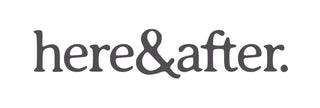Having a baby can often result in purchases that are not entirely necessary and to be honest – a little excessive at times. Caught up in the excitement, it is easy to spend money on items you believe you will need when the baby comes, only to realise it’s not the right season for it, the baby doesn’t like being in it or they’ve grown so fast, there wasn’t a chance to wear it!
A babies needs are very basic and we can make decisions on purchases and practices to ensure we are being respectful to the environment as our little one grows. Remember that what we do and use as parents is often the tools and practices our children will adopt themselves as adults. We have the chance to show them how to live simply while being mindful of how our choices impact our environment.
Here are some simple ways you can minimise waste while having a baby…
- Buy second hand
Most baby items are often used for such a short period of time that second hand items are barely used or may never have been used! Rather than purchasing new, consider second hand options for things like prams, play equipment, cots, clothes and nursery items such as baby monitors.
- Accept hand-me-downs
Again, due to babies growing so quickly, clothes are often used for a very short period of time. Having a friend or family member with a slightly older baby can be a wonderful source of hand-me-downs. You can then pass these on to ensure they get a third or fourth use.
- If you can, use cloth nappies and wipes
Depending on your situation, consider making the switch to reusable nappies and wipes if you feel this is manageable. Cloth nappies will save over 400g of waste going into landfill and making the switch to cloth wipes will save up to 14,000 wipes ending up in our bins and waterways PER CHILD. Remember you don’t have to do it perfectly! Using just a couple of cloth nappies per day really adds up and makes a difference. Many people want to do “something” for the environment and cloth wipes are a wonderful start. Not only are they better for the environment, but they save up to $1500 over 2 years, are more effective at cleaning and are better for your little ones skin.
- Consider unisex colours, styles and clothing
Consider this especially if you plan on having more than one baby. Buying unisex clothing may be the difference between being able to reuse all of your items again or feeling the need to purchase more.
- Buy only what you need when you need it
It is easy to believe you need all the baby items before the baby is born but it is a good to sit back and wait a little before jumping right in. You will learn pretty quickly what your baby does and doesn’t like and what you really do require, so best not to rush in and purchase unnecessary items before their arrival.
- Stainless steel or wood instead of plastics
Not only is plastic bad for the environment, but it will also breakdown or crack over time. When it comes to things like toys, cups, water bottles and plates, steer clear of plastic items if you can. Wood and stainless-steel items may be more cost up front, but they will last you a lifetime.
- Book and toy libraries
This is particularly useful when wanting to reduce waste, save money or if you live in a minimalist house. Borrowing toys and books are a wonderful way to enjoy these items without needing to buy them. You can swap them as needed to welcome in new items as your baby grows.
- Choose clothing wisely
Consider the time of year your baby will be born and when they will enter new seasons before you purchase clothing. It sounds simple but is often overlooked. Gorgeous winter coats and boots will be wasted on a summer baby and swimsuits may will be outgrown before you get to use them if your little one is born in the cooler months. Also consider the amount you will need. As a new parent you will be washing very regularly so may not need as many clothes as you think. It is easy to be swept up in the cuteness of baby clothes but take a step back and think practically about what they will need before you commit to buying it.
- Use what you have
The baby industry is big business and can often try to sell you items you may not need. Baby towels for example – an adult towel is just as effective and perfectly fine to use. Using a water bottle or container filled with rice makes a lovely rattle sound. Milestone cards can be replaced with phone apps with milestone features rather than you needing to buy these for just one use.
We'd love to hear what steps you take to reduce waste while raising children!

